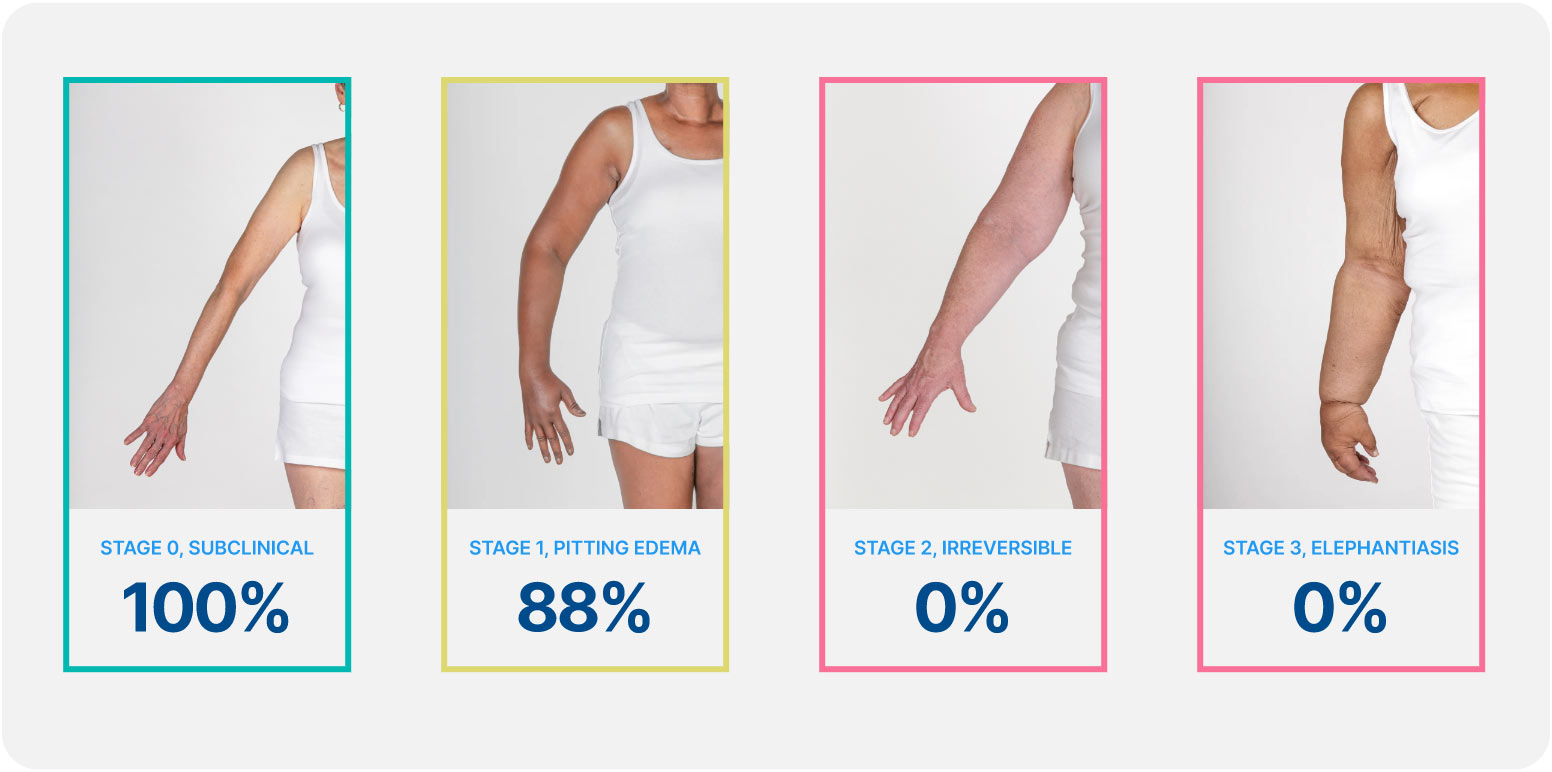
ImpediMed’s BIS technology is more precise and reliable than tape measure in detecting lymphedema (LE), as there are statistically significantly fewer triggers and interventions for those assessed with BIS compared to tape measure (p=0.011)2.
Extensive clinical evidence shows that using ImpediMed’s bioimpedance spectroscopy (BIS) technology for early detection and intervention reduces the impact of chronic lymphedema on breast cancer patients.
Lymphedema develops in stages, and a university of Kansas study found that when lymphedema is detected at stage 0 or stage 1 it is reversible, but in stages 2 and 3 it is not. These findings demonstrate how early conservative intervention and prospective monitoring with BIS can significantly lower rates of BCRL and persistent BCRL (pBCRL).¹

The PREVENT Trial involved 10 centers across the US and Australia and was the largest randomized controlled trial (RCT) to assess lymphedema prevention in breast cancer patients.
BIS offers a good possibility to monitor the water content of a person. This can be used in monitoring decompensated CHF patients. Since most patients with acute heart failure suffer not only from lung edema, but also from edema in limbs a combination of segmental and whole body BIS measurements offers the best options to supervise the course of diseases. In this paper, both BIS measurements show a strong correlation with the water balance and weight loss.
Beckmann, L., et al., Monitoring of body fluid in patients with chronic heart failure using Bioimpedance-Spectroscopy. IFMBE Proceedings 25/VII, 2009. 25: p. 532-535.